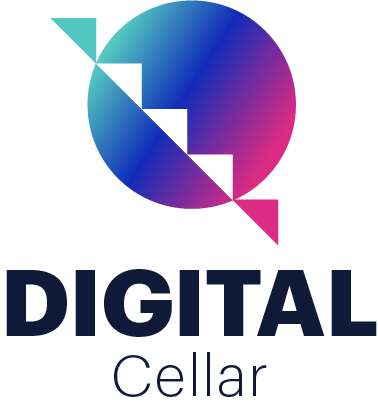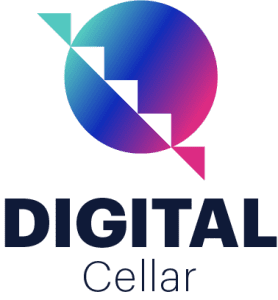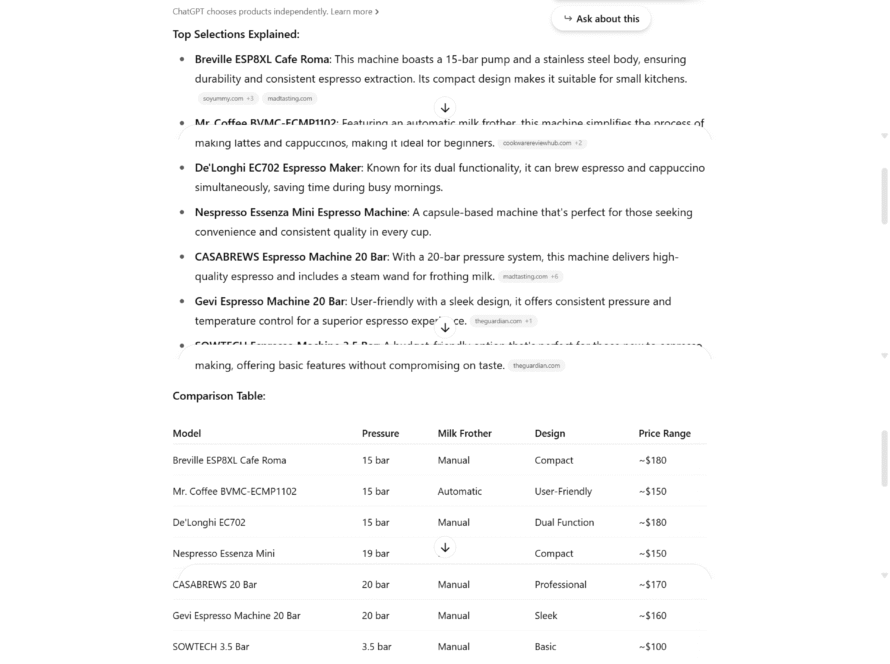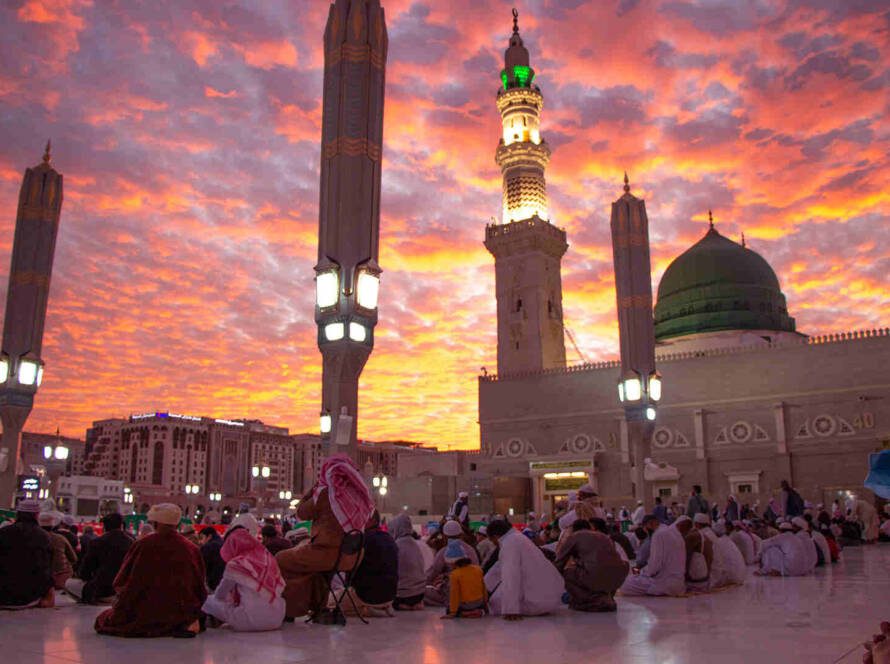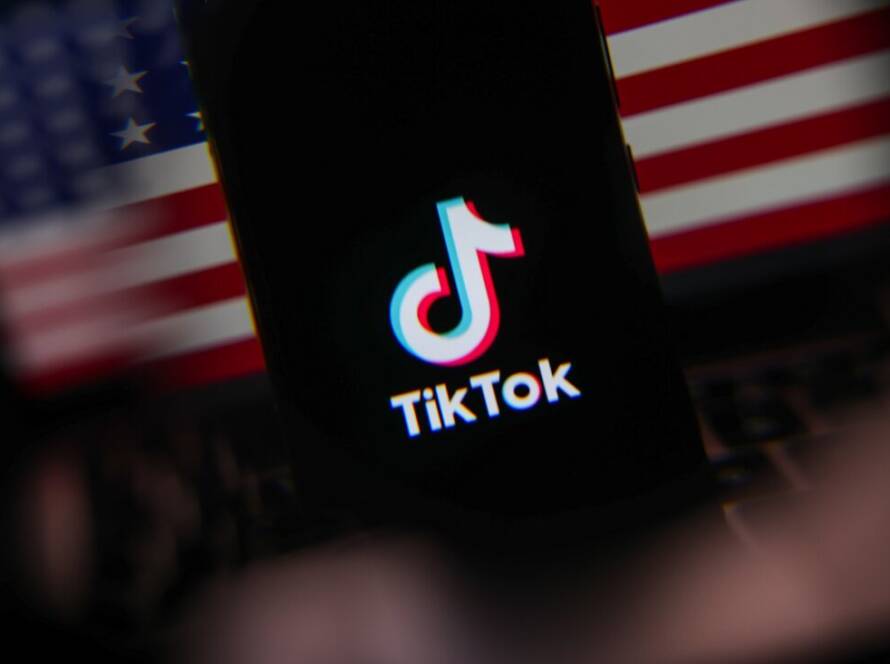Ramadan in Indonesia is a period of profound reflection, communal unity, and celebration. As the world’s largest Muslim-majority country, Indonesia presents a unique canvas where the sacred month of Ramadan interweaves with the country’s diverse cultural fabric. This month-long observance, characterised by fasting, prayer, and introspection, transcends mere religious rituals, evolving into a holistic societal phenomenon that significantly impacts the socio-cultural and economic dynamics of the nation.
For businesses and marketers, Ramadan in Indonesia is more than just another date on the calendar; it represents a crucial period of transformation in consumer behaviour. The month of Ramadan is marked by a shift in daily routines, an uptick in communal activities, and a change in spending patterns, all of which offer unique challenges and opportunities for those in the marketing sphere. It is a time when brands can forge deeper connections with their audience, not merely through commercial transactions but through meaningful engagement that resonates with the ethos of Ramadan.
In this holistic exploration, we delve into how Ramadan in Indonesia shapes and is shaped by various elements: cultural and religious practices, the evolving digital landscape, consumer behaviours, marketing strategies, and more.
This blog aims to provide a comprehensive understanding of the multifaceted influence of Ramadan in Indonesia and how it can be harnessed in the field of marketing and beyond.
The Cultural and Religious Fabric of Ramadan
In Indonesia, a nation where spirituality and culture are deeply intertwined, Ramadan holds a place of paramount importance. The month of Ramadan, observed by millions across the archipelago, is not only a time for spiritual renewal but also a period where the cultural richness of Indonesia is on full display. The practice of fasting from dawn till dusk, known as Sawm, is observed with fervour, reflecting the commitment of Indonesian Muslims to their faith.

The Spirit of Community and Unity
Ramadan in Indonesia fosters a sense of communal solidarity that transcends social and economic barriers. The act of fasting together, experiencing hunger and thirst, serves as a powerful equaliser, reminding everyone of the universal human experience and the virtues of empathy and compassion. The communal Iftar, the meal with which the fast is broken at sunset, becomes a daily celebration of togetherness. Mosques, community centres, and even streets become hubs of communal dining, where people from all walks of life gather to share a meal.
Cultural Celebrations and Traditions
Beyond the religious observance, Ramadan in Indonesia is a time of cultural festivities. The streets are adorned with vibrant decorations and lights, creating an atmosphere of celebration and joy. Night markets and bazaars spring up, offering an array of traditional foods, clothing, and goods, turning into lively centres of commerce and social interaction. Special dishes, such as Kulak, a sweet coconut milk-based dessert, and various types of Kue, traditional Indonesian sweets, become staples at Iftar tables.
Traditional practices such as “Mudik,” the annual exodus where people travel back to their hometowns to celebrate Eid al-Fitr with their families, highlight the deep-rooted cultural significance of Ramadan. This mass movement is not just a physical journey; it is a symbol of returning to one’s roots, reconnecting with family, and sharing in the collective joy of the season.

Spiritual and Social Impact
The spiritual impact of Ramadan in Indonesia goes beyond personal growth and introspection. It also manifests in heightened charitable activities and community outreach programs. Zakat, the act of giving to those in need, becomes a central theme, with individuals, communities, and even corporations participating in acts of generosity. This emphasis on charity and community service reinforces the social bonds and highlights the collective responsibility towards the less fortunate, a key tenet of Ramadan.
The Marketing Landscape During Ramadan
Ramadan in Indonesia presents a distinct and dynamic marketing landscape, where traditional consumer behaviours undergo a transformation, and new patterns emerge. During this sacred month, the intersection of spirituality, culture, and commerce creates a unique opportunity for brands to connect with their audience in meaningful ways.
Understanding the Ramadan Consumer
Consumer behaviours in Indonesia during Ramadan are characterised by a notable shift. There is a surge in shopping, influenced by both the necessities of the month and the anticipation of Eid al-Fitr, the festive celebration marking the end of Ramadan. This period sees increased spending on food, clothing, home decor, and gifts. The heightened sense of community and the spirit of giving also led to more charitable contributions and purchases of items for Zakat.
For marketers, understanding these shifts is crucial. It’s essential to recognize that purchasing decisions during Ramadan are influenced by a blend of religious obligation, cultural practices, and personal preferences. The marketing strategies need to be sensitive to these aspects, aligning with the values and spirit of the month.
The Shift in Digital Engagement
The digital engagement during Ramadan sees a significant uptick. With more people seeking convenience in their shopping and looking to balance their religious and daily responsibilities, there is a greater reliance on e-commerce platforms. Social media usage also increases as people connect with friends and family, share experiences, and seek content related to Ramadan.
This digital shift opens avenues for marketers to engage with their audience through targeted online campaigns, social media initiatives, and e-commerce strategies. Brands can leverage this opportunity to create digital content that resonates with the themes of Ramadan, provide convenience through online shopping options, and engage with consumers through social media platforms.
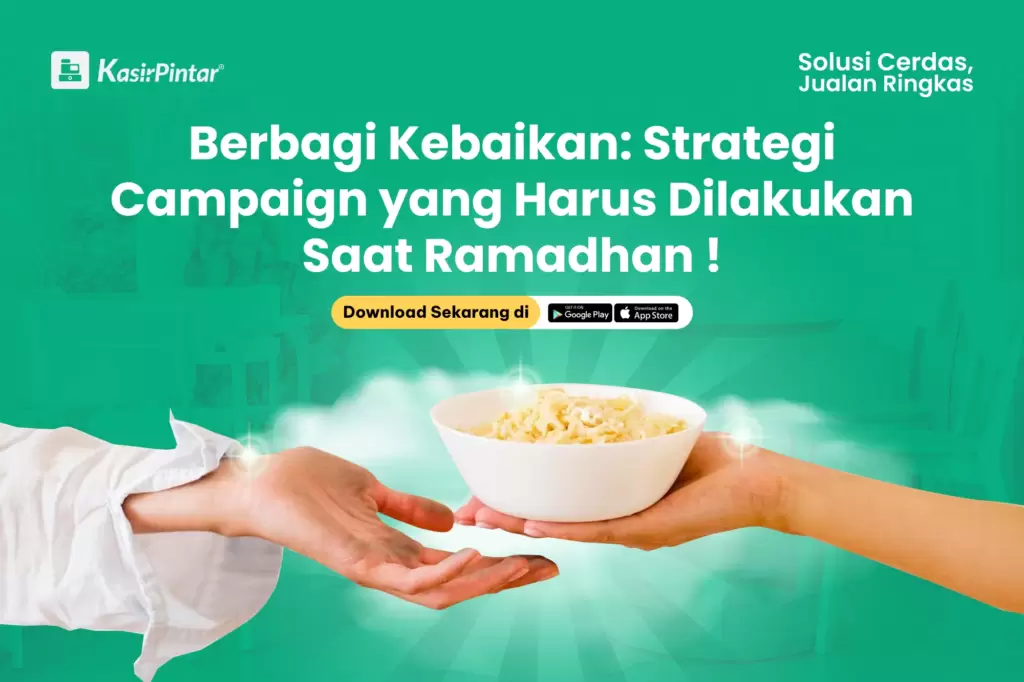
Marketing Strategies That Resonate
Effective marketing during Ramadan goes beyond typical commercial messaging. It involves resonating with the emotional and spiritual ethos of the month. Campaigns that reflect the values of reflection, community, and charity are more likely to strike a chord with the audience. This could mean creating content that tells stories aligned with the spirit of Ramadan, engaging in corporate social responsibility initiatives, or offering products and services that cater to the unique needs of the Ramadan consumer.
For instance, food brands might focus on products that are popular for Iftar, fashion brands might introduce special Ramadan collections, and home decor brands could offer items that add to the festive ambience. It’s about providing value that is in sync with the spirit of Ramadan.
Cultural Sensitivity and Branding
In a diverse and predominantly Muslim country like Indonesia, cultural sensitivity during Ramadan is non-negotiable. Brands must ensure that their marketing messages are respectful of religious sentiments and cultural norms. This includes avoiding stereotypes, understanding the nuances of the Indonesian Muslim community, and ensuring that the content is inclusive and respectful.
Marketing during Ramadan in Indonesia is a balancing act between commercial objectives and cultural empathy. It requires a deep understanding of the consumer psyche, a strategic approach to digital engagement, and a commitment to resonate with the ethos of Ramadan. Brands that succeed in this are those that approach Ramadan not just as a marketing opportunity, but as a chance to build deeper, more meaningful connections with their audience.
Digital Evolution and Its Impact on Ramadan Celebrations
The digital landscape in Indonesia has undergone a significant transformation, especially during Ramadan. This evolution has not only changed how the holy month is celebrated but also how it is experienced by the Indonesian Muslim community. This chapter explores the emergence of digital platforms as an integral part of Ramadan celebrations and their role in enhancing connectivity, and community and balancing tradition with technology.

The Rise of Digital Platforms
In recent years, the digital revolution in Indonesia has brought about a new dimension to Ramadan celebrations. Platforms like YouTube, TikTok, and various e-commerce sites have become increasingly popular, offering unique ways for people to connect, share, and celebrate Ramadan. These platforms cater to a wide range of activities, from streaming religious content and virtual Iftars to online shopping for Ramadan essentials.
Social media platforms have seen a surge in usage during Ramadan. They serve as spaces for sharing festive greetings, religious messages, and personal reflections related to the holy month. This digital engagement has extended the boundaries of community and fellowship, which are central to Ramadan, allowing for a more inclusive and widespread celebration.

Enhancing Connectivity and Community
The digital revolution has played a crucial role in enhancing connectivity and community during Ramadan. With physical gatherings sometimes limited, digital platforms have provided alternative means for people to connect with family and friends. Virtual Iftars, live streaming of Tarawih prayers, and online religious lectures have become commonplace, ensuring that the communal spirit of Ramadan remains strong.
This digital connectivity has also facilitated greater inclusivity, allowing those who are far from their families or unable to participate in physical gatherings to still be a part of the celebrations. It has bridged geographical divides, bringing together the Indonesian diaspora and enabling them to partake in the communal spirit of Ramadan, irrespective of their location.
Balancing Tradition with Technology

The integration of digital platforms into Ramadan celebrations in Indonesia is a fine example of balancing tradition with technology. While the essence of Ramadan – fasting, prayer, and reflection – remains unchanged, the way these practices are observed has evolved with the digital age.
The use of apps for prayer times, Quran reading, and Zakat calculations exemplifies how technology is being used to enhance religious practices. E-commerce platforms have also revolutionised Ramadan shopping, offering convenience and a variety of options for consumers. This has been particularly beneficial for small businesses and local artisans, who have found a new avenue to reach customers during the festive season.
Challenges and Opportunities
While the digital evolution brings numerous opportunities, it also presents challenges. The influx of digital content during Ramadan requires careful navigation to ensure that the core values of the month are upheld. There is a need for content moderation to maintain respect for religious and cultural sentiments.
For marketers, this digital shift offers a plethora of opportunities to engage with consumers in innovative ways. However, it requires a strategic approach that respects the sanctity of the month while leveraging the digital tools available. Campaigns that successfully blend traditional Ramadan values with modern digital trends are likely to resonate more with the audience.
The Art of Digital Marketing in the Ramadan Context
Embracing the Digital Shift During Ramadan
Ramadan, a period deeply rooted in tradition and spirituality, also marks a significant shift in the digital behaviours of consumers in Indonesia. This chapter explores the art of digital marketing in this unique context, focusing on effective strategies and the critical role of ad sequencing, personalised content, and video marketing.
The Digital Ramadan: A Landscape of Opportunities
During Ramadan, the digital engagement of consumers in Indonesia skyrockets. This is fuelled by several factors, including the need for connection during fasting hours, the search for entertainment and spiritual content, and the convenience of online shopping for Eid preparations. For marketers, this presents a ripe landscape to deploy targeted digital marketing strategies.
Ad Sequencing: Crafting a Ramadan Narrative
Ad sequencing plays a vital role in digital marketing during Ramadan. This strategy involves showing a series of ads to the same audience over a specific period. In the context of Ramadan, ad sequencing allows marketers to tell a compelling story that aligns with the progression of the month. It’s about creating a narrative that evolves, mirroring the spiritual journey of Ramadan. This method can lead to higher engagement as audiences are taken on a journey that develops with time, fostering a deeper connection with the brand.
Personalised Content: Connecting on a Deeper Level
Personalisation is key in resonating with the Ramadan audience. Consumers are more likely to engage with content that reflects their personal experiences and emotions during this holy month. Personalised marketing efforts could involve tailored emails, customised social media ads, or content that acknowledges the unique practices and sentiments of Ramadan. Utilising data analytics to understand consumer behaviours during Ramadan can greatly enhance the effectiveness of personalised content.
Video Marketing: A Powerful Tool for Engagement
Video marketing takes centre stage during Ramadan. The compelling nature of video content makes it an ideal medium to capture the essence of Ramadan – from heartfelt storytelling that reflects the spirit of the month to informative content that offers value to the consumer. Platforms like YouTube see increased viewership, providing an excellent opportunity for marketers to leverage video ads and branded content. Video content that is culturally sensitive and emotionally engaging can significantly boost brand visibility and connect with the audience on a deeper level.
The Rise of Social Media Platforms
Social media platforms see heightened activity during Ramadan. Brands can capitalise on this by creating interactive and shareable content, running Ramadan-themed campaigns, and engaging with consumers through contests, live sessions, and more. It’s also a time when influencer partnerships can be particularly effective, as influencers can help amplify brand messages within Ramadan celebrations.
The Challenge of Cultural Sensitivity
Digital marketing during Ramadan must be handled with cultural sensitivity and respect for the sanctity of the month. This involves understanding the fine line between commercial messaging and honouring the spiritual and cultural significance of Ramadan. Campaigns should be designed to add value to the Ramadan experience rather than merely capitalizing on the festive atmosphere.
Digital marketing during Ramadan in Indonesia requires a thoughtful blend of creativity, cultural understanding, and strategic planning. By leveraging ad sequencing, personalized content, and video marketing, brands can effectively engage with consumers during this significant period. The key is to create campaigns that are not only commercially successful but also resonate with the cultural and spiritual ethos of Ramadan, building lasting connections with the audience.
Addressing Mental Health and Societal Pressures in Ramadan Marketing
Navigating the Emotional Landscape of Ramadan
Ramadan in Indonesia is not only a time of spiritual significance but also a period that brings its own set of emotional and societal challenges. In this chapter, we explore how marketers can address mental health and societal pressures in their campaigns, showcasing empathy and understanding.
The Intersection of Fasting and Mental Wellbeing
Fasting during Ramadan, while spiritually rewarding, can also be mentally and physically demanding. Marketers need to recognise this and tailor their campaigns to reflect an understanding of these challenges. Promoting products or services that support well-being, such as healthy food options or wellness activities, can be particularly effective.
Humanise Marketing: A Key Ingredient
Empathy is paramount in Ramadan marketing. Campaigns that acknowledge the emotional experiences of fasting, such as fatigue, hunger, and the struggle for self-discipline, can create a deeper connection with the audience. Marketing messages should be crafted to show understanding and support for these challenges, rather than merely focusing on commercial gain.
Balancing Commercial and Compassionate Messaging
Striking a balance between commercial interests and compassionate messaging is crucial. Brands should avoid overt commercialism, which can be perceived as insensitive during a sacred period like Ramadan. Instead, they should focus on how their products or services can genuinely improve the Ramadan experience, whether through convenience, comfort, or spiritual enrichment.
Addressing Societal Pressures
Ramadan can also amplify societal pressures, such as the expectation to host elaborate Iftars or wear new clothes for Eid. Marketing campaigns should be mindful of these pressures and aim to promote inclusivity and accessibility. For instance, offering affordable product ranges or highlighting simple yet meaningful ways to celebrate can help alleviate these pressures.
In Ramadan marketing, it’s crucial to navigate the emotional and societal landscape with sensitivity and understanding. By focusing on empathy, acknowledging the mental and physical demands of fasting, and addressing societal pressures, brands can create campaigns that resonate on a deeper level, building trust and loyalty with their audience.
Hyperlocal and Omnichannel Strategies in Ramadan Marketing
In the diverse and complex market of Indonesia, especially during Ramadan, hyperlocal and omnichannel marketing strategies play a crucial role. This chapter delves into the significance of these approaches, exploring how they can be effectively utilised across various platforms like WhatsApp, Telegram, social media, outdoor advertising, radio, and e-commerce platforms like Shopee and Tokopedia.
Embracing Hyperlocal Marketing: Cultural Nuances and Regional Preferences
Hyperlocal marketing involves tailoring marketing messages to local audiences, considering their unique cultural nuances, languages, and preferences. During Ramadan, this approach is particularly effective in Indonesia, where cultural and regional diversity is vast. Brands can leverage local dialects, cultural symbols, and region-specific traditions in their campaigns to resonate more profoundly with their audience.
For instance, using local languages in social media campaigns or customising outdoor advertisements to reflect regional Ramadan practices can significantly enhance brand relevance and consumer engagement.
Omnichannel Strategies: Integrating Online and Offline Channels
Omnichannel marketing provides a seamless consumer experience across various channels, both online and offline. During Ramadan, when consumer behaviours are dynamic, an omnichannel approach is vital. This could involve integrating messaging platforms like WhatsApp and Telegram for personalised communication, leveraging social media for broader reach, and complementing these with traditional media like radio and outdoor advertising for a holistic marketing strategy.
Leveraging Messaging Platforms for Personalised Engagement
WhatsApp and Telegram offer unique opportunities for personalised engagement. Brands can use these platforms for direct communication, sending Ramadan greetings, exclusive offers, or updates about special Ramadan products. This personalised approach can build a more intimate relationship with consumers.
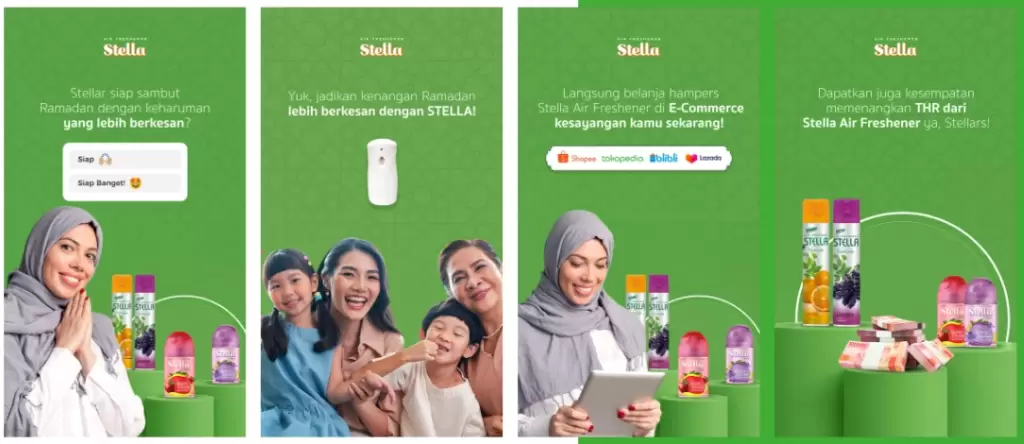
Social Media: The Heart of Digital Ramadan
Social media platforms are at the forefront of digital engagement during Ramadan. They offer a space for interactive content, live sessions, and influencer collaborations. Brands can use these platforms for storytelling, sharing Ramadan-themed content, and engaging with consumers through contests and interactive posts.
Platforms like Instagram and Facebook are ideal for visually appealing content, while Twitter can be used for real-time engagement and trends. TikTok, with its growing popularity in Indonesia, offers a creative outlet for short, engaging Ramadan-themed videos.
Traditional Media: Complementing Digital Efforts
While digital platforms are crucial, traditional media like radio and outdoor advertising still hold significance, especially in reaching audiences in rural or less digitally accessible areas. Radio campaigns can be effective for conveying Ramadan messages and promotions, particularly during commute times. Outdoor advertising, such as billboards and banners, can be used to enhance brand visibility in local communities, featuring Ramadan-specific imagery and messages.

E-commerce Platforms: The Hub of Ramadan Shopping
E-commerce platforms like Shopee and Tokopedia become bustling hubs during Ramadan. Brands can leverage these platforms not only for sales but also for creating a festive shopping experience. This can include special Ramadan deals, themed virtual storefronts, and live shopping events.
Live shopping has gained traction, offering an interactive shopping experience. Brands can collaborate with influencers or celebrities to host live sessions, showcasing Ramadan products and offering exclusive deals. This approach combines entertainment with shopping, making it a compelling strategy during the festive season.
Hyperlocal and omnichannel strategies are vital for effective marketing during Ramadan in Indonesia. By combining personalised engagement through messaging platforms, creative content on social media, the reach of traditional media, and the convenience of e-commerce platforms, brands can create a comprehensive and cohesive marketing campaign that resonates with the diverse Indonesian audience.
Politics, Religion, and Market Dynamics in Ramadan
In Indonesia, the intersection of politics and religion during Ramadan can have profound implications on the market dynamics. This chapter delves deep into how post-election scenarios influence consumer behaviours during Ramadan, and how marketers can anticipate and adapt to these shifts.
The Political Climate and Consumer Confidence
Indonesia’s political climate, particularly post-election, can significantly impact consumer confidence and spending behaviours. Elections often bring about uncertainties related to economic policies, governance, and social stability. The outcome of elections and the political atmosphere can influence consumer sentiment, either bolstering confidence or leading to cautious spending.
Understanding these political undercurrents is crucial for marketers. In periods of political stability and optimism, consumers may be more inclined to spend, particularly on non-essential items. Conversely, in times of uncertainty, there might be a tendency to prioritise essential purchases, with less emphasis on luxury or discretionary spending.
Economic Stability and Ramadan Spending
The state of the economy post-election plays a critical role in shaping Ramadan spending. Factors such as inflation rates, currency stability, and overall economic growth are critical determinants of consumer purchasing power. In a robust economic environment, consumers may have more disposable income to spend during Ramadan, leading to higher sales in various sectors, including retail, food, and hospitality.
Marketers must stay abreast of economic indicators and adjust their strategies accordingly. There might be opportunities to introduce premium products or services in a buoyant economy. In contrast, in a more constrained economic environment, focusing on value-for-money and cost-effective solutions may be more appropriate.
Adapting Marketing Strategies to Economic and Political Realities
Effective marketing during Ramadan in a post-election scenario requires agility and adaptability. Brands should be prepared to adjust their messaging and offerings based on the prevailing economic and political conditions. This might involve offering more promotions and discounts in times of economic tightness or highlighting luxury and indulgence in times of economic prosperity.
The Role of Nationalistic Sentiments in Consumer Behaviour
Post-election periods often see a surge in nationalistic sentiments, which can influence consumer preferences. There is a tendency to support local brands and products as a form of national pride. Understanding this sentiment can provide a significant advantage for local or domestic brands. Even international brands can tap into this sentiment by emphasizing their contribution to the local economy or by aligning with local values and customs.
Leveraging Digital Platforms to Gauge Consumer Sentiment
Digital platforms can be invaluable in understanding and responding to consumer sentiment in real-time. Social media listening tools can help brands gauge public opinion and sentiment post-elections. This information can be crucial in tailoring marketing campaigns to the mood and preferences of consumers during Ramadan.
The Importance of Responsive Supply Chains
In a post-election scenario, having a responsive supply chain is vital. Economic and political changes can impact supply chain dynamics, including the availability of products and pricing. Brands need to ensure that their supply chains are flexible enough to adapt to these changes, ensuring that they can meet consumer demand effectively during Ramadan.
Preparing for the Unexpected
Marketers must also be prepared for unexpected developments in a post-election landscape. This might involve contingency planning for rapid shifts in consumer sentiment or sudden changes in economic policies. Being prepared for a range of scenarios ensures that brands can remain resilient and responsive, regardless of the political and economic environment.
Anticipating and adapting to post-election scenarios is critical for effective marketing during Ramadan in Indonesia. By understanding the interplay of politics and consumer behaviours, leveraging digital tools for real-time insights, and ensuring responsive supply chains, marketers can create strategies that resonate with the mood and needs of the consumer, ensuring success even in times of uncertainty.
Influencers and KOLs in Ramadan Marketing

The Transformative Role of Influencers and KOLs (Key Opinion Leaders)
In the landscape of Ramadan marketing in Indonesia, influencers and key opinion leaders (KOLs) have emerged as powerful forces in shaping consumer behaviour and preferences. This chapter explores their impact during Ramadan, effective strategies for collaboration, and measuring the impact of influencer campaigns.
Influencers in the Digital Age: A Ramadan Perspective
During Ramadan, the digital activity of consumers in Indonesia increases significantly. In this digital sphere, influencers and KOLs play a crucial role. They are not just trendsetters; they are trusted voices that resonate with the audience. During Ramadan, their content often shifts to focus on topics like lifestyle, spirituality, and charitable activities, aligning with the mood of the month.
Selecting the Right Influencers for Ramadan Campaigns
Choosing the right influencer is critical. Brands should look for influencers whose values and audience align with their own. During Ramadan, influencers who can authentically integrate the spirit of the holy month into their content are particularly effective. This might mean collaborating with influencers known for their spiritual content, food bloggers who focus on Ramadan recipes, or fashion influencers who showcase Eid styles.
Authenticity and Cultural Sensitivity
The key to successful influencer partnerships during Ramadan is authenticity and cultural sensitivity. Influencers who genuinely participate in Ramadan rituals and understand the cultural nuances can create content that is both engaging and respectful. Brands should ensure that the influencers they collaborate with have a genuine connection to Ramadan and can convey their messages in a way that resonates with the audience.
Strategies for Effective Collaboration
Effective collaboration with influencers during Ramadan can involve a variety of strategies. These could include sponsored content, where influencers create posts that incorporate the brand’s products or services, or collaborative events, such as live cooking shows or charity drives. Another effective strategy is co-creating content, where brands and influencers work together to create content that aligns with both the brand’s objectives and the influencer’s style.
Measuring the Impact of Influencer Campaigns
To assess the success of influencer campaigns, brands need to look beyond traditional metrics like likes and shares. Engagement rates, audience sentiment, and conversion rates can provide deeper insights into the effectiveness of the campaign. Additionally, tracking the performance of specific calls-to-action or promotional codes used by influencers can offer concrete data on the campaign’s impact on sales or other desired outcomes.
Influencers and KOLs have become integral to Ramadan marketing in Indonesia, offering a unique way to connect with consumers. By selecting the right influencers, focusing on authenticity and cultural sensitivity, and employing effective collaboration strategies, brands can leverage these partnerships to enhance their Ramadan campaigns, driving engagement and achieving tangible results.
Embracing the Spirit and Opportunities of Ramadan
As the crescent moon heralds the arrival of Ramadan in Indonesia, a nation graced with remarkable diversity and vibrant culture, it also signals the onset of an extraordinary period for both reflection and consumption. The rich tapestry of Indonesian traditions, combined with the sacred observance of Ramadan creates an ecosystem ripe with opportunities for businesses that understand and respect the cultural and religious nuances of this holy month.
The essence of Ramadan, with its deep spiritual significance, influences a wide array of consumer behaviours—from increased spending in preparation for Eid to the collective search for spiritual and charitable avenues. The advent of digital evolution, particularly in the realm of e-commerce, has further transformed the Ramadan experience, presenting both challenges and opportunities in equal measure.
The successful navigation of the marketing landscape during Ramadan in Indonesia requires a multi-faceted approach—one that honours tradition while embracing innovation. Marketers who strike this balance with cultural sensitivity and creative agility can connect with the hearts and minds of consumers, thereby fostering relationships that extend beyond the holy month.
The holy month of Ramadan in Indonesia stands as a powerful reminder of the harmonious blend of faith and commerce. It is a time when the digital and the divine coalesce, offering a period of immense potential for those willing to approach it with a blend of reverence and strategic insight. As brands look towards the horizon, they do so knowing that Ramadan offers a unique moment to engage with a captive audience in ways that can resonate long after the last date has been broken.
In conclusion, the spirit and opportunities of Ramadan in Indonesia encapsulate the essence of a time when the threads of culture, commerce, and community intertwine to create a rich mosaic of life. For those who observe the nuances and listen to the rhythm of this sacred time, the rewards are manifold, transcending the ephemeral to touch upon something enduring and true.
Final Thoughts
As you reflect upon this comprehensive narrative of Ramadan in Indonesia, may it serve as a source of inspiration for your marketing strategies and cultural engagements. Embrace the spirit of this holy month, and let the ethos of empathy, generosity, and community guide your actions and campaigns.
